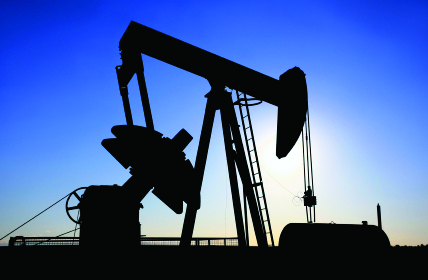The most dangerous oil- and natural gas-producing country in the world is Venezuela, where K&R insurance, for “kidnapping and ransom,” is a necessity if you absolutely have to go.
Produced Water Society President Steve Coffee of San Diego, Calif., who was there in late 2015 and early ’16, says it was the uneasiest experience of his life.
“This was the one place I felt like I should not be in, because I knew it wasn’t safe,” said Coffee, who has worked in 37 nations on the problem of the contaminated water used for fracking.
“At one time Venezuela was the 12th-largest producer in the world with 2.5 million barrels per day, but now they’re down to 400,000, and I don’t know how they even get that much,” he said. “A few companies are still there like Chevron and the Spanish company Repsol, but it’s hard to talk about investing money because the train is off the rails.”
Coffee said a friend from Calgary, Alberta, Canada, who was in Venezuela recently said conditions had worsened withf idnappings, murders and other violent crime being a daily occurrence, not just in Caracas but everywhere.
“It’s a bad situation with the political environment and the failure of the government,” he said. “People are starving to death. They can’t afford to buy food or get water to drink. It’s really sad.”
Listing the next most dangerous oil countries he’s worked in, Coffee said Venezuela makes Mexico and Nigeria, where he also had K&R insurance and armed guards to protect him, look relatively benign.
On its website, the Chevron Corp. says it has worked in Venezuela since the discovery of the Boscan Field there in the 1920s. “Today we participate in five on-shore and off-shore production projects in the country,” the company said.
“Chevron works in partnership with affiliates of Petróleos de Venezuela, the national oil company, in four joint-venture operations in western and eastern Venezuela.
“Three of these are heavy or extra-heavy crude oil projects.”
Chevron has undertaken an extensive program to help average Venezuelans with their health, education and economic development. “Since 2007, our social investment contributions have totaled more than $108 million,” the company website said.
“Chevron implements social investment projects in four out of the five states in Venezuela that have been identified as priority areas for basic human needs by the United Nations Humanitarian Venezuela Response Plan of 2019.
“Every year, 45,000 Venezuelans directly benefit from Chevron programs. In 2019 and ‘20, we invested $5 million in programs selected in consultation with a variety of local and international organizations,” the company website said.
Coffee said a primary cause of the crushing poverty is the government of President Nicolas Maduro of the United Socialist Party of Venezuela, who has held power since the death of President Hugo Chavez in 2013.
“One reason for the unrest is probably that all the money is in the hands of a very small group of people,” he said. “It’s a corrupt system that is a lot worse than Mexico’s. I worked in the San Tome area in central Venezuela, and it was a long, bumpy ride to get there.”
Asked how an American avoids trouble there, Coffee said, “By knowing the hot spots, traveling with locals and keeping very low key. You can avoid being kidnapped if you do that. Kidnapping is a big money-making machine, and it is the big threat for Americans. A lot of companies specialize in K&R insurance.”
Coffee said the Venezuelan energy industry is being “overshadowed” by everything else that’s going on.
“It’s very concerning, and they are obviously going to have to figure it out for their people,” he said. “My friend from Calgary didn’t know when I asked him, ‘Will it take a decade?’
“I don’t know how you get over that kind of trouble and unrest.”




